International Women’s Day 2024 – RANZCOG Member Profiles
Count Her In: Invest in Women. Accelerate Progress.
The International Women’s Day (IWD) 2024 theme aims to examine the pathways to greater economic inclusion for women and girls everywhere.
This year, RANZCOG is celebrating the compassionate and intelligent women within our membership who lead the way for excellence in women’s healthcare.
We are excited to share eleven member profiles from our clinicians across the Pacific, Aotearoa New Zealand, and Australia, which highlights how this year’s IWD theme resonates most with them.
#IWD2024 #CountHerIn
Dr Marrwah Ahmadzai
Ngunnawal and Ngambri Country (Canberra), ACT
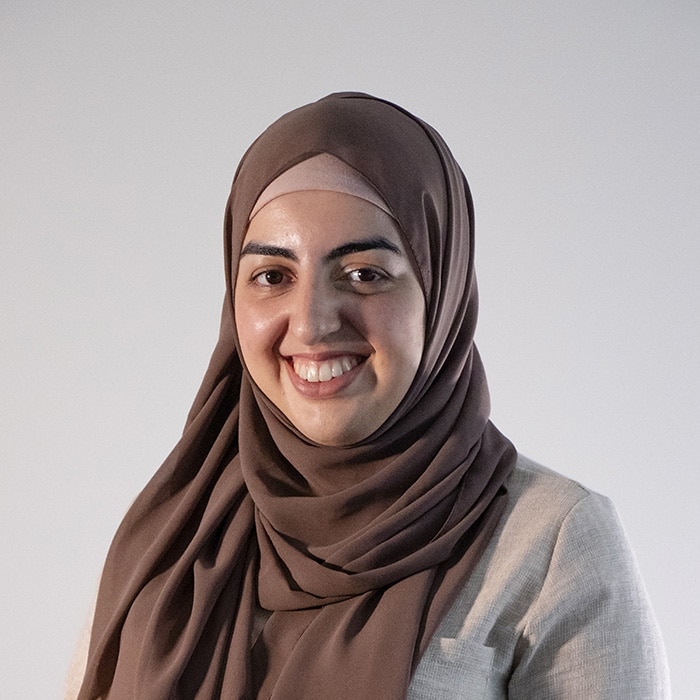
What have been barriers or challenges you’ve experienced and how did you overcome them, or currently trying to overcome them?
The triple whammy of being young, female and visibly Muslim have all presented challenges. Perhaps the greatest challenge of the three has been dealing with overt and covert racism from both patients and colleagues. I have been very vocal about my experiences and have been invited to share them in a variety of settings including on the TEDx stage. I have found dialogue validating and a helpful outlet to work through my experiences. It has also motivated me to engage in advocacy to promote initiatives in antiracist medicine, health equity and female healthcare leadership.
Some examples of advocacy initiatives I have been involved in include collaborating with Jean Hailes for Women’s Health to develop a resource for clinicians on improving access to reproductive healthcare for migrant and refugee women and leading an antenatal education program in my local community for women with limited English language proficiency.
I am also part of the RANZCOG cultural safety steering group that produced the cultural safety statement of intent and is working towards incorporating cultural safety into the new curriculum and college activities.
Read more
This year’s IWD Day theme is: Count Her In: Invest in Women. Accelerate Progress. What does this mean to you?
As a clinician dedicated to women’s health, the first thing that comes to mind when reflecting on this year’s theme is health inequity and the recently published McKinsey Health Institute report on the women’s health gap. It is well known that women spend 25% more time of their life in poor health compared to men. This is the equivalent of 75 million years of life lost annually on account of ill health or premature mortality.
Women’s health burden is not limited to sexual and reproductive health but also encompasses general health more broadly, particularly as many medical conditions manifest differently or are poorly understood in women. The ability to overcome these challenges represents extraordinary economic and social potential.
According to the McKinsey Health Institute modelling, addressing the women’s health gap could boost the global economy by $1 trillion annually by 2040.It is important that we use this year’s International Women’s Day theme to reflect on ways we, as a nation and as a college, can invest in and advocate for women to address health inequity including accurate estimation of disease burden, investing in medical research to tailor treatments in women, addressing barriers to care by adopting an intersectional lens and developing innovative solutions to women’s health issues.
Who have been your champions and allies and how have they supported you?
Behind every success story are countless unsung heroes and I too have had endless champions and allies in my professional journey. My immediate family have been a rock-solid source of constant, unwavering support and offer hard truths when I need to hear them.
Many O&G registrars and consultants have provided me with mentorship, advice, and support over the years. They are too many in number to name individually. It was through their support that I was successful in my training application and have continued to progress through the echelons of the FRANZCOG program. I have had the privilege of working with many junior doctors that have helped me get through difficult shifts and watched me develop and grow. I am grateful to call many of these colleagues my friends and champions.
I have also benefited greatly from mentorship from medical colleagues outside of our speciality. During the COVID-19 pandemic, I had the pleasure of meeting the inimitable Dr Talaulikar, haematologist, who has started the Link and Grow program, a mentoring program for female healthcare professionals of diverse cultural backgrounds. I joined the program as a volunteer for a period of time. Through this role, the opportunity for me to participate in a formal mentorship program arose. I was mentored by Dr Sandhya Ramanathan, a general practitioner living in New Zealand. Her mentorship and guidance gave me many valuable insights into achieving balancing in life more broadly and weathering the stormy waters of studying for exams whilst working full time.
How do you believe organisations can better invest in women and accelerate progress regarding gender equity?
In Australia, women comprise 75% of the health workforce. However, there is a leaky pipeline and women are under-represented at the leadership level, as only 38% of chief medical officers, 45% of public healthcare board chairs and 45% of medical deans are women. Organisations can better support women in by fostering a culture where women are supported to thrive. This includes strategies to increase both recruitment and retention of female staff.
Retention relies on the provision of psychosocial conditions that encourage women to stay. Some things that can help include providing flexible working arrangements and facilities for breastfeeding, encouraging women to apply for leadership roles and adopting a zero-tolerance attitude to bullying, harassment and discrimination. Given my own positive experiences with mentorship, I also believe there is a place for mentorship and leadership training to grow more female leaders.
Dr Kristine Barnden
Nipaluna (Hobart), Tasmania
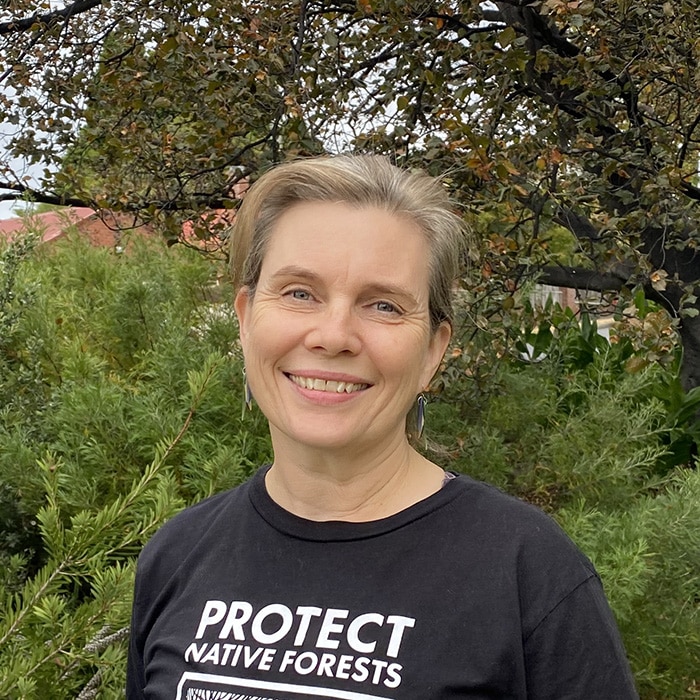
What have been barriers or challenges you’ve experienced and how did you overcome them, or currently trying to overcome them?
I find most people are interested in learning more about the links between women’s health, the environmental crisis and social justice. I think they understand the issues and are concerned. But it’s hard for all of us to wrap our heads around the extent and the urgency of the crisis, and the fact that nothing’s going to change unless we stand up and demand it.
People are overwhelmed by day-to-day life, it’s hard to ask them to make room for an existential crisis. As professionals, we’re taught to stick to the scientific evidence, the data. It’s frowned upon if we incorporate emotion or story or values. But emotions evolved to aid in decision making, and to make use of science and data we need to know how they fit in with our stories and our values.
I’m working on getting better at storytelling, being emotionally honest, and asking others to consider what they love and what they fear. It’s a type of discourse that’s been denigrated as “feminine”, but we need to embrace it.
Read more
This year’s IWD Day theme is: Count Her In: Invest in Women. Accelerate Progress. What does this mean to you?
I have a focus on environmental and climate change advocacy. Women’s status and lack of consideration of their needs makes them especially vulnerable to the effects of climate change and natural disasters. But when we do invest in women, the results are amazing. Across nations and cultures, women tend to be more concerned than men about environmental issues, are more accepting of climate science, make up to 80% of the membership of grass-roots environmental organisations, and show more pro-environmental behaviours.
In 2017, the Drawdown Project evaluated all available carbon mitigation strategies and concluded that female empowerment (through a combination of educating girls and improving access to family planning) was the most effective thing the world could do to fight climate change. I like to quote Mary Robinson, the former UN Commissioner for Human Rights, who said “climate change is a man-made problem with a feminist solution”.
Who have been your champions and allies and how have they supported you?
I am most inspired by the ordinary people around me who are doing what they can alongside study or work or raising a family. They’re joining committees or writing poems or organising protests or growing their own veggies or just having a conversation. They do it anyway even though it never seems like it’s going to be enough, but if more people join in it might be.
What achievement are you most proud of?
My biggest achievement was getting started.
Dr Leigh Duncan
Aotearoa New Zealand
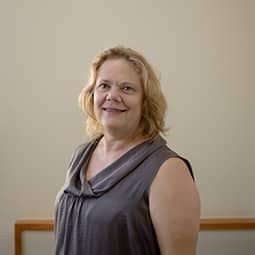
What have been barriers or challenges you’ve experienced and how did you overcome them, or currently trying to overcome them?
Learning to compromise work and home life. I had wonderful help from Nannies and my husband while working. I also reduced my work hours so I could pick up my girls after school. I had some very forward thinking older colleagues who were willing to provide cross cover to accommodate my holidays.
Read more
This year’s IWD Day theme is: Count Her In: Invest in Women. Accelerate Progress. What does this mean to you?
Appreciate, acknowledge and value all work women do.
Who have been your champions and allies and how have they supported you?
I had supportive parents who from a young age taught me women can do most thing men do but maybe in a different way. Value yourself even if others might not and always work hard . I have had many mentors from many different walks of life. A common theme was they believed in me, taught me and passed on their wisdom willingly.
What achievement are you most proud of?
My three daughters who make everybody they interact with lives’ better.
How do you believe organisations can better invest in women and accelerate progress regarding gender equity?
Appreciate there are always more than one way to do things. Be willing to ask what can be done to help. There is no one size fits all here.
Anything else you’d like to share?
Value diversity.
Dr Sophie Doherty
Gadigal Country (Sydney), New South Wales
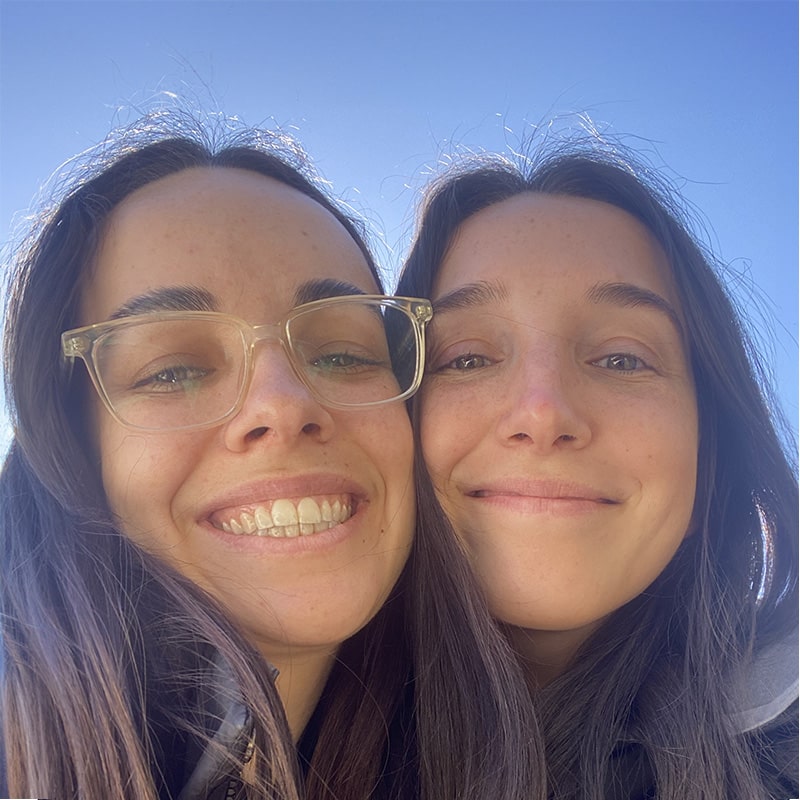
This year’s IWD Day theme is: Count Her In: Invest in Women. Accelerate Progress. What does this mean to you?
O&G specialty training today is female dominated, it’s imperative that the fellowship program is dynamic and looking into how best to support, nurture, and empower this burgeoning cohort. Investing in women in O&G means acknowledging evidence showing the transformative impact of female leadership in healthcare settings and the undeniable correlation between female surgeons and improved patient outcomes and satisfaction.
I’m lucky to be leading a trainees committee in this Council term who are passionate about this, as well as the multiple college committees I contribute to that all are working towards improving the standards and culture to reflect our female workforce. Flexible training, training in pregnancy, woman-centred return to work assistance as well as upholding safe workplaces for women without discrimination or harassment are all key issues at the forefront of ongoing work within the college.
Read more
Who have been your champions and allies and how have they supported you?
I am so appreciative of those who have gotten me to where I am, from my amazing working single mum who raised me, to those who truly championed my entry into Medicine at the School of Indigenous Studies at UWA. When I wasn’t sure about applying to O&G training, my senior registrar at Westmead gave me the confidence to do so, every step of the way through training since then I’ve had powerhouse female O&G supervisors who have been there to help me see the wood for the trees and tell me this is where I’m meant to be (you all know who you are!).
What have been barriers or challenges you’ve experienced and how did you overcome them, or currently trying to overcome them?
My barriers aren’t special, they’re barriers faced by every woman trying to get through school, university and specialist training where each of those worlds aren’t built to reflect the female experience. Dealing with systemic misogyny, systemic racism is hard but I believe we can work towards systems which can see intersectional feminism as a core value.
Anything else you’d like to share?
This picture is of me and my sister, my best friend, who I’m most proud of, who’s always been such a strong, empowered and self-determined First Nations woman.
Dr Nisha Khot
Naarm (Melbourne), Victoria
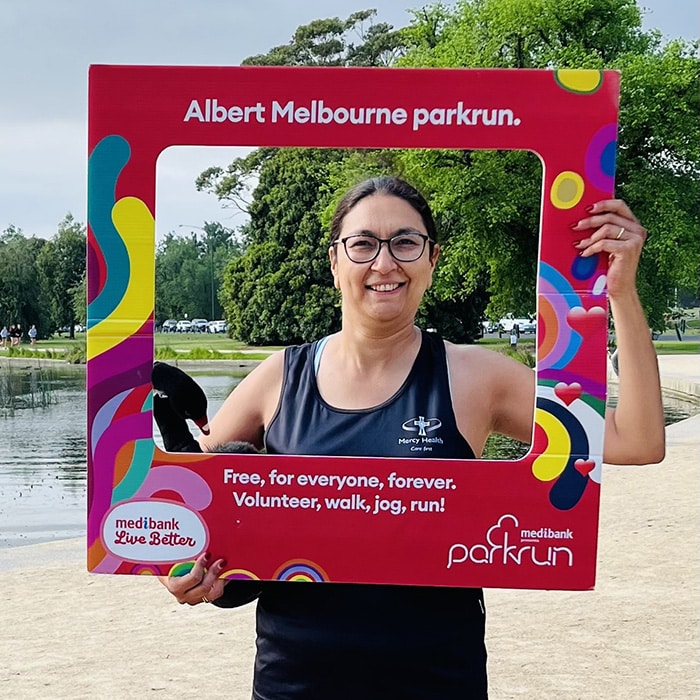
What achievement are you most proud of?
I am most proud of representing women of colour and advocating for their rights in my role as Vice President of RANZCOG as well as Board Chair of the Multicultural Centre for Women’s Health (MCWH).
MCWH began its life in 1978 with the aim of providing in-language education on contraception to migrant women working in clothing factories in Melbourne. From this humble beginning, it has grown into a women led organisation with an evidence-based and collaborative approach into healthcare for migrant and refugee women.
Leading MCWH into the next phase of strengthening migrant women’s health and wellbeing is a source of great pride since it aligns with my own core intersectional, feminist values.
Read more
This year’s IWD Day theme is: Count Her In: Invest in Women. Accelerate Progress. What does this mean to you?
I see this as a call to action to invest in women’s health and economic empowerment to ensure that we accelerate progress towards gender equity. The time for questioning the existence of inequities is past. It is time to enact measures to change our current social and organisational structures to achieve full gender parity. This should not be a discussion we have every year on IWD. It should be actions we take every day in our workplaces, our communities and our families.
How do you believe organisations can better invest in women and accelerate progress regarding gender equity?
Organisations must move beyond tokenism and truly commit to addressing gender inequity. They should be held accountable through reporting structures like the WGEA gender pay gap report. The healthcare workforce, in particular, can be described as ‘Delivered by Women, Led by Men’. Healthcare organisations must identify their own cultural and structural barriers to women’s leadership. Enabling women’s leadership via workplace training, mentorship and opportunity must be a recognised priority. We must not forget to apply an intersectional lens to all equity initiatives to alleviate the compounding disadvantages of race and ethnicity amongst many others.
Anything else you’d like to share?
A few years ago, I joined my local parkrun for the first time. I wasn’t athletic, I had never played any sport seriously. In fact, I had given up on all physical activity as a teenager. I went to parkrun reluctantly, expecting to be put off by ‘proper’ runners who would be all about how fast they were and how far they could go. I was pleasantly surprised to find a community who were there just to get moving. Some people ran fast, some ran slowly, some didn’t run at all. Everyone was welcome, there was a designated person whose job it was to come last so no participant came last. Since then, I have gone back on Saturday morning at 8am as often as I can and will soon be participating in my 150th event!
One of the lesser-known gender gaps is the gender exercise gap. Australian women exercise for 60 minutes less than men each week despite wanting to do more physical activity. We know of the beneficial effects of exercise on physical and mental health. It is often said that if exercise was a pill, we would all be taking it. Investing in women must include investing in women’s ability to bridge the leisure-time gap.
Women need societal, workplace and familial support to engage in leisure activities, including exercise. And they should have judgement-free opportunities like parkrun where they feel welcome, no matter whether they are athletic or not.
Dr Marilyn Morris
Port Moresby, Papua New Guinea
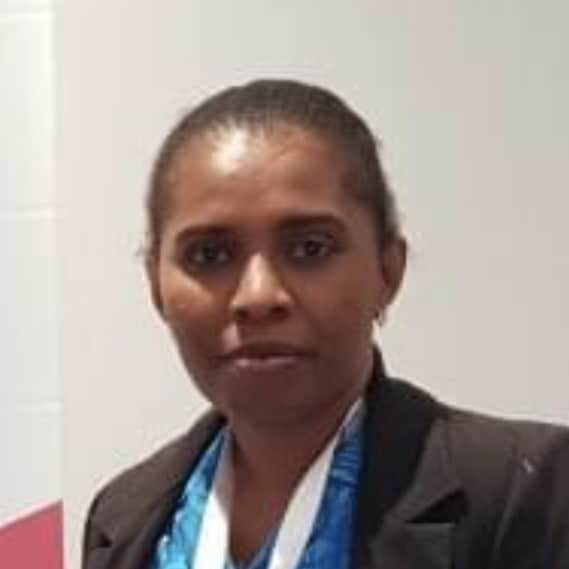
Who have been your champions and allies and how have they supported you?
As an only child growing up in a provincial town in Papua New Guinea, I was blessed to have such as supporting, strong-willed, and God-fearing mother who despite the challenges placed upon her, went against all odds to ensure that I had a comfortable, stable upbringing and quality education. My mother is a community leader, missionary, entrepreneur, and a firm believer in female empowerment. She was the one who encouraged me to pursue a career in medicine and Women’s health and would constantly remind me of my pivotal role in society as an advocate and champion for women’s rights.
As I work with women from different backgrounds and walks of life, I draw inspiration and counsel from the wise words of my mother and generations of strong and independent women before her and am reminded of the greater responsibility I have.
Read more
This year’s IWD Day theme is: Count Her In: Invest in Women. Accelerate Progress. What does this mean to you?
Access to affordable and equitable sexual and reproductive health is a universal right. As a Melanesian and female obstetrician and gynaecologist working in the Pacific, I am very much aware of the influences of society, culture and economical barriers on women and their families, the decisions they make and their reproductive choices. This years’ IWD theme highlights the importance of investing in Women and Women’s health. It focuses the conversation on a topic of global importance; the strategic role of Women in society and how gender equality and inclusivity contribute to holistic and sustainable development and economic growth.
What achievement are you most proud of?
After graduating with my Master of Medicine in O&G, I decided to pursue an academic pathway as a Clinical Lecturer in Sexual and Reproductive Health with the University of Papua New Guinea. I currently teach and work with both undergraduate and postgraduate trainees and supervise clinical training and academic research at the Port Moresby General Hospital. Being able to mentor, guide, and interact with all cadres of health workers, patients and trainees on a day-to-day basis is exhausting at times but fulfilling.
Seeing my trainees excel in their various roles after graduating is a humbling and satisfying experience indeed knowing that you had a part to play in preparing the next generation of medical professionals and leaders to go out there and make a difference. Apart from work, my greatest achievements would be my two sons, a 5 and 11-year-old whom I adore.
What have been barriers or challenges you’ve experienced and how did you overcome them, or currently trying to overcome them?
Society has changed remarkably from 15 years ago and now is becoming more and more aware and accepting of female doctors and of females in other roles and leadership capacities that previously were only held by men. However, I am reminded again and again in my Melanesian Society when discussing SRH issues and especially contraception about the dominant and sometimes overbearing role of men in reproductive decision-making.
Male involvement in reproductive health decision-making is slowly changing these norms, especially in Port Moresby General Hospital where I work. In many places, especially in rural and remote PNG, these practices are deeply ingrained into the cultural DNA of society and may take generations to overcome.
How do you believe organisations can better invest in women and accelerate progress regarding gender equity?
I believe ensuring women have a voice goes a long way including having regular leadership, gender equality, and communication skills training for all employees. Providing opportunities for women to participate in further education and capacity-building is paramount as well as encouraging women to take on leadership roles within their organisation. All organizations should have equal opportunities, equal pay, and equal benefits for both men and women which should be guided by policy and dependent on performance and merit and not on gender.
Anything else you’d like to share?
I adore reading fantasy and Sci-fi books and have always dreamed of becoming a writer. Hopefully, someday that would be possible.
Dr Litia Narube
Suva, Fiji
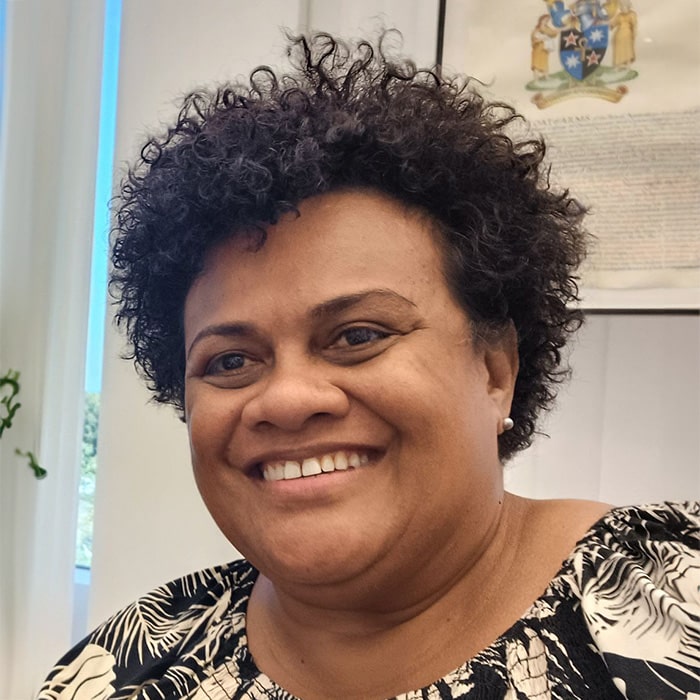
What have been barriers or challenges you’ve experienced and how did you overcome them, or currently trying to overcome them?
Getting over the Imposter syndrome and identifying cultural norms that might hinder professional progress has been a challenge. Turning up to meetings and interacting with major stakeholders of women’s health in Fiji has been such a steep learning curve.
Read more
This year’s IWD Day theme is: Count Her In: Invest in Women. Accelerate Progress. What does this mean to you?
It means there is no gender when considering work opportunities and promotions. That everyone should be considered on merit. We need to allow women of all colours through that door. That will create a wonderful platform for productivity and progressive inclusivity. It broadens the outlook of an organization and creates a richer working community.
Who have been your champions and allies and how have they supported you?
Firstly, my parents have been my champions. I am blessed that I’m still able to hear their wise counsel and to look back with adult sized retrospectacles and appreciate the old-school way of mentoring that has propelled us forward.
Prof Rajat Gyaneshwar has also been instrumental in me being with Fiji National University and he has shown us that we have seats on the many tables that we have never considered, and our voices needed to be heard.
Thirdly, Dr James Fong, who moulded many young aspiring obstetricians and gynaecologists from Fiji and the region. He taught many of us to be critical thinkers and the importance of contextualizing the application of new evidence.
Lastly, the many women leaders in Health in Fiji, especially Women’s Health. From the women that shattered that glass ceiling many decades ago, like Drs Litiana Browne, to the current women leaders in Health in Fiji, Drs Kelera Sakumeni, Vasitia Cati, Nanise Sikiti, Mairini Rokovunisei, Una Tabua, Mai ling Perman, Odille Chang and Julia Singh. These are women of great strength that work tirelessly not only to lift the standards for today but especially for those following them.
What achievement are you most proud of?
So far, I am very thankful to be in Fiji National University and leading the O&G Unit. It offers a great opportunity to influence the landscape of Women’s Health, especially in the learning and teaching of future health workers including O&G Specialists not only in Fiji but also in the region.
How do you believe organisations can better invest in women and accelerate progress regarding gender equity?
In 2022, with the help of Dr John Tait and Dr Ravi Chandran, AOFOG and FIGO sponsored the 1st Respectful Maternity Care for Fiji. Within 2 weeks, these 2 gentlemen helped me to organize the workshop and introduce me to global leaders in Women’s Health. The FIGO President, Dr Jeanne Conry, delivered her lecture live from Paris at 3am. She did not mind the inconvenience that a workshop in a small Pacific Island nation would cause her.
A leader leading by example, but also a woman leader offering a boost to another.
Dr Leeanne Rose Panisi
Honiara, Solomon Islands
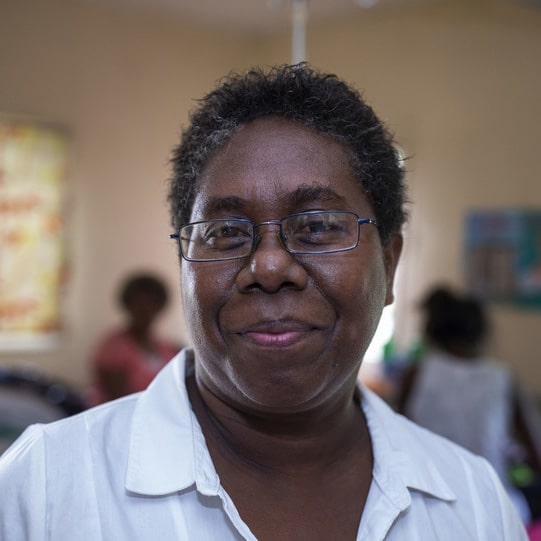
What have been barriers or challenges you’ve experienced and how did you overcome them, or currently trying to overcome them?
One of the main challenges that I face is working in a low resource setting is the shortage of medicines, consumables and lack of equipment. This has affected the care that we offer as we have to improvised and use what we have as best as we can. Often times it’s stressful when you are not able to provide the best care because of the last of medicines and consumables. Support from visiting teams such as the John James Foundation helps us with equipment, some consumables. We are grateful for that.
Another challenge is being a female leader (I am the HOD of the O&G Department at NRH since 2012) in a Melanesian country where culturally men are seen as superior, I have to advocate and shout out louder to be heard and to work harder to be seen. Sometimes not being taken too seriously being a woman. It is slowly changing as I have worked hard to prove myself as a female leader. I hope one day that this will change to some extent as people become more educated.
Read more
This year’s IWD Day theme is: Count Her In: Invest in Women. Accelerate Progress. What does this mean to you?
To me this year’s theme means that all women matter. Inclusion of women in the society and investment in women through education, health and social support accelerates financial, economic and social and progress in the family, community and country.
Who have been your champions and allies and how have they supported you?
My champions would be my parents who have seen the importance of education and invested in me by sending me to school, supporting me on this journey to where I am today. My allies are all who support me along the way through encouragement, financial and social support. They are many. However, to name a few: I was sponsored by NZODA as an undergraduate student in Medical school and later by AusAID doing my postgraduate training in Obstetrics and Gynecology. I am thankful to them.
Coming back to National Referral Hospital (NRH), Honiara as a young, inexperienced consultant, I had support from Pacific Island Project by financing mentors to come over to NRH to provide capacity building and mentoring on surgical skills. I am grateful to these mentors – Professor Glen Mola, Professor Alec Ekeroma, Dr David Simon and Dr Adel Mekhail.
I am grateful to RANZCOG as for advocating and supporting me on this initiative and enabling me to attend various trainings and workshops as capacity building. Since 2015, the John James foundation under the leadership of gynecologist Dr Elizabeth Gallagher have been supporting us through surgical mentoring, equipment, consumables and now in sub specialist training. This relationship is ongoing, and we are grateful to them.
We also had support of Australian Volunteers International (AVI) O&G registrars and DFAT who came and work at NRH for 6 months, supporting us with the Internship training, registrars training, research and the development of the Solomon Islands Obstetrics and Gynaecology Standard Treatment manual. We are grateful to them: Dr Rebecca Mitchell, Dr Rangi De Silva, Dr Romany Erwin, Dr Sarah Luthy, Dr Michael Baker, Dr Aggie Kujawa, Dr Rebecca Taylor and Dr Victoria Snowball.
Not forgetting, I am grateful also to the Ministry of Health and Medical Services and Government of Solomon Islands for supporting me in all these endeavours and my career journey.
What achievement are you most proud of?
The development of the Solomon Islands Obstetrics and Gynecology Standard Treatment Manual in 2018. Since becoming a consultant in 2011, it was my desire and aim to develop this. Not until 2017, when AVIO&G Registrar Dr Rebecca Mitchell came and worked with us at NRH that we developed the manual. Thank you for the support from Dr Rebecca Mitchell, AVI, DFAT, RANZCOG, MHMS – Solomon Island. I would also like to acknowledge the external reviewers: Professor Glen Mola and Dr David Simon and the O&G working group.
How do you believe organisations can better invest in women and accelerate progress regarding gender equity?
1. Support for young female doctors interested in O&G through scholarships, training, workshops.
2. Provide clinical and surgical mentoring through having AVI O&G registrars and or O&G specialists coming to work in low resource setting such as NRH for 6 months at one time. I find that the AVI O&G registrars have helped a lot in all levels (interns, registrars, consultants) when they were here. They bring with them new evidence based practice, new information and networking with external specialist on area of need. The relationships are long lasting and good for the careers of these young doctors. I have similar relationships with Dr Rebecca Mitchell and Dr Rangi De Silva where we have a WhatsApp chat group that we discuss difficult and challenging O&G cases. This really helps in patient care.
Anything else you’d like to share?
I have always been interested in research since medical school but did not have much experience or knowledge on research. In 2011, the PSRH Biennial Conference was held in Honiara, I met Dr Kirsten Black and we did our first research together in 2013 – 2014. That was my first experience with research. In 2018 Dr Rangi De Silva came as a AVI registrar and we did more research together. The relationship with Dr Kirsten Black and Dr Rangi De Silva in doing research and providing capacity building in research continued to develop to this day. They have provided capacity building in research not only for me but for our O&G doctors as well. We are grateful to them for that.
This year the O&G Department at NRH is involved in a Multi country research on WHO Global Monitoring for Maternal and Newborn Health. This research by lead by Professor Joshua Vogel and team at Burnett Research Institute. Looking back I am proud and happy to see our achievements and progress on research in the Department. We have come a long way in developing research in the Department and now we are involve in this major research. I hope and pray that one day that I will have the opportunity to do.
Dr Preeti Patil
Darumbal Country (Rockhampton), Queensland
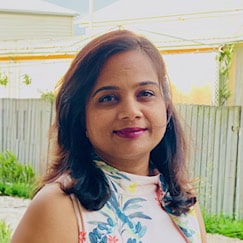
What achievement are you most proud of?
The HHS and O&G Department I work in, went through major crisis in the recent past, leaving me as the only Consultant between 3 hospital, having no clinical supervisor for trainees. During the time period where there was significant risks including burnt out and lack of self-compassion, safety , sustainability, overall well-being and supervision of trainees.
Pressures from two hospitals being on bypass, negative media attention and difficulties in recruitment. To turn the place around in 8 months and achieving a full RANZCOG accreditation was an incredible journey.
Read more
This year’s IWD Day theme is: Count Her In: Invest in Women. Accelerate Progress. What does this mean to you?
To me the IWD theme means recognising the strengths of women, acknowledging the multiple roles and responsibilities of women including outside of work, truly value the differences, reinforce support systems and compassion that will ensure that inclusion actually comes from the heart.
Who have been your champions and allies and how have they supported you?
Three incredible women that I need to acknowledge: Dr Nisha Khot, Vice President at RANZCOG for mentoring and guiding me; Dr Emma McCahon, Former CEO at CQHHS; Dr Ruth Varrall, Clinical Director of Orthopaedics at Rockhampton Hospital, a friend and peer.
I’d also like to acknowledge Dr Michael Kirk, DMS Rockhampton; and my husband and kids.
What have been barriers or challenges you’ve experienced and how did you overcome them, or currently trying to overcome them?
Lack of locum support at the regional hospital in QH. Lack of work-life balance. Lack of mentoring and support from fellow colleagues. Being a diverse woman in leading role – being called an outsider! Workforce bullying and harassment. I am trying to overcome these, and to a greater extent I’ve been successful since taking up the leadership by role modelling a positive work culture, promoting wellbeing and challenging stereotypes.
How do you believe organisations can better invest in women and accelerate progress regarding gender equity?
Organisations could create opportunities for women to take up smaller responsibilities, recognise their abilities and foster growth and development.
Anything else you’d like to share?
I am a compassionate doctor and believe in bringing this into the work environment that feels safe, fair, and nurtures growth and development of the. team. I am the co-founder of Rockhampton Women in Medicine Society – which was started to provide comradeship to diverse women working in silos in various departments at regional hospitals. I am passionate about teaching change management; clinical effectiveness intrigues me, and I’m always striving for the best in department and patient care.
Prof. Anna Rosamilia
Naarm (Melbourne), Victoria
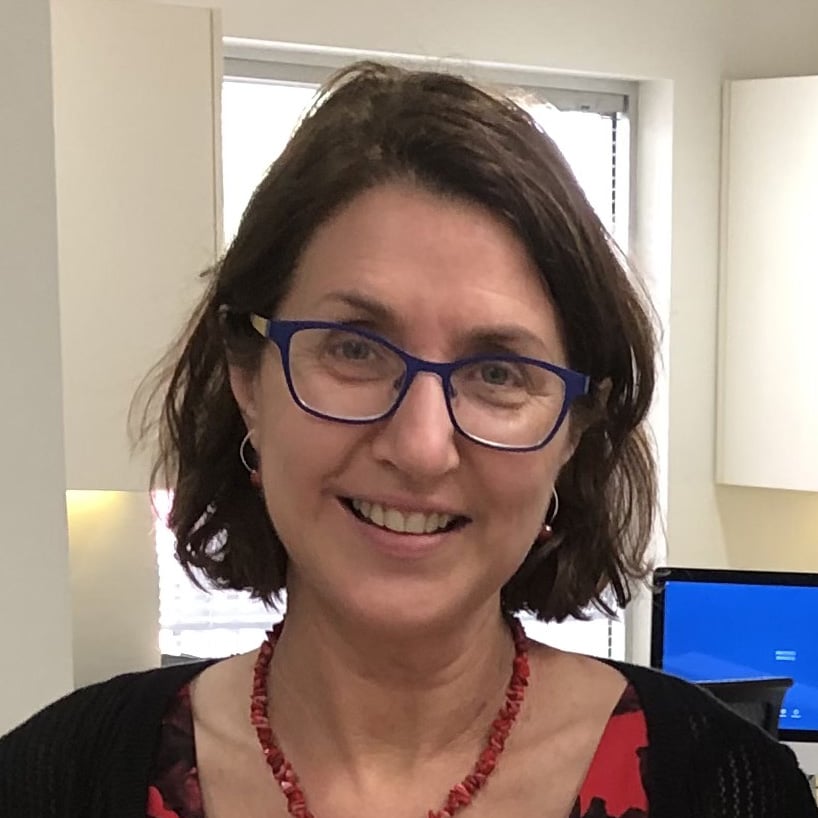
This year’s IWD Day theme is: Count Her In: Invest in Women. Accelerate Progress. What does this mean to you?
A gynaecologist does this every day of their working life. As a urogynaecologist, I Count Her In every single day. I listen to women discuss some very personal and confronting issues and we try to find solutions together. For me Investing in women now, is investing in our future. We’re investing in women by advocating for resources, offering options, understanding disease processes, supporting and conducting research in women’s health, and educating medical students, trainees, GPs, allied health and nursing colleagues.
We also invest in educating our patients and the community so that we can share decision making. Progress takes time but by collaborating with our basic science colleagues to help understand conditions such as pelvic organ prolapse and urinary incontinence, we can accelerate progress in treatment option sand explore prevention strategies. By working internationally, we can encourage policy makers to consider the prevention and treatment of maternal birth trauma and its consequences as a public health priority.
Read more
Who have been your champions and allies and how have they supported you?
From being a junior trainee at Monash the year after it transitioned from Queen Vic to being voted as the President of the International Urogynecology Association for 2026-7, there have many champions and allies along the way. My husband, Dan of 35 years has been a solid support and sounding board. I am very grateful to Prof Peter Dwyer who mentored me in my subspecialty training. He is a champion of Urogynaecology in Australia and worldwide. Also to the late Prof David Healy who encouraged me to follow an academic pathway; obtaining a PhD on the elusive condition of interstitial cystitis and Dr Geoff Edwards who gave up his role and encouraged me to step up and be head of the Monash Pelvic Floor Unit.
Research collaborators such as the Hudson institute and funding bodies have progressed the cause of our research. The Australasian and NZ Urogynaecology (UGSA) society, many of the AGES community and Continence Foundation of Australia are friends, colleagues and allies; these societies as well as RANZCOG are our national educators and being an active member of these societies provides great networking and outreach. Say yes to these opportunities. Dr Ranee Thakar, past president of IUGA and current RCOG president, and many members of The International Urogynecology Association have supported me in becoming President Elect of IUGA.
What achievement are you most proud of?
Personally I’d have to say, our four children; they continue to educate and inspire me in so many ways not the least of which is trying to keep up to date with Gen Z lingo. My family gives me perspective and provides a constant opportunity to be grateful. I am so very proud of the Pelvic Floor Unit at Monash Health, a busy tertiary service across many campuses. We are a tight-knit unit that offers exceptional care to women and excellent training to RANZCOG, CU and international fellows and observers over more than 20 years.
We are very proud to see our trainees’ becoming consultants in Australia and overseas and becoming leaders themselves. I am also proud of the research collaborations we have fostered and that we have basic scientists, engineers and funding bodies interested in urogynaecology.
What have been barriers or challenges you’ve experienced and how did you overcome them, or currently trying to overcome them?
I can remember the late Chris Tippett saying to me when I was SR that it always took longer to achieve the same milestones as male colleagues. In the past, it was challenging balancing clinical paid work, childcare and voluntary work. Luckily most of us have the resources to get help. Being available and open to opportunities means that usually you find what your strengths are.
I have a default collaborative and cooperative setting which helps in patient and organisational communication. On the other hand, advocating for yourself as a clinician, your team or your (sub)specialty means being persuasive and visible even if that labels you as “bossy.” You can’t do it alone so finding allies is important.
How do you believe organisations can better invest in women and accelerate progress regarding gender equity?
Increasing visibility is important, so thank you for this opportunity. Health care organisations and societies can better invest in women by positive or equitable representation in positions of leadership, committees and conference faculty and providing the resources to facilitate this including leadership and media training courses.
From an ethical perspective, RANZCOG and other female dominated workforces have a responsibility to their members and society to invest in women and achieve gender equity in a financial sense and to have policies that align with this. The research funding and resource allocation toward women’s specific health care needs should be equitable. Organisations such as RANZCOG and IUGA also have a responsibility to promote the status of women, their education and economic independence and access to healthcare globally.
Dr Talat Uppal
Gadigal Country (Sydney), New South Wales
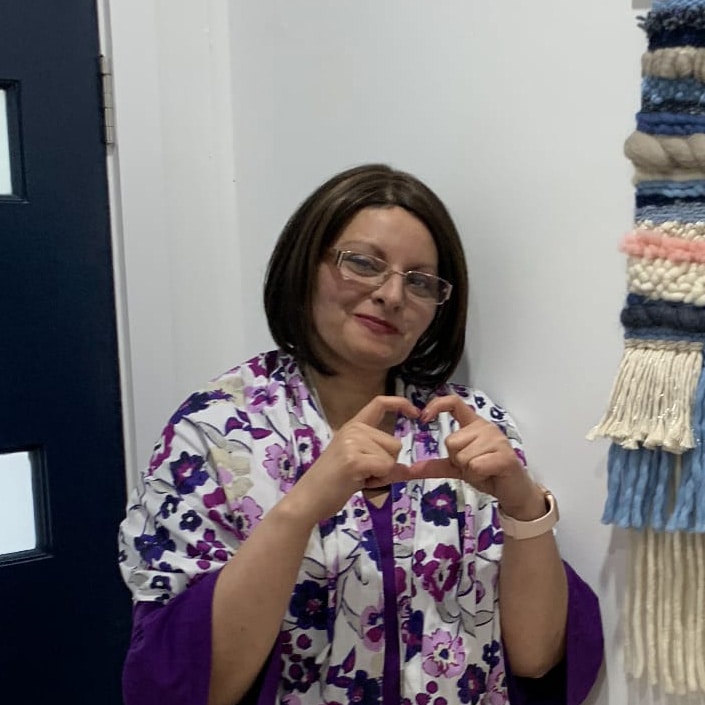
How do you believe organisations can better invest in women and accelerate progress regarding gender equity?
Organisations can boost gender equity by fostering a culture that embraces diversity, acknowledging that diverse teams often excel over uniform ones, including financially. Implementing leadership-based quotas can also hasten progress, as merit isn’t exclusive to a single societal clone, and waiting for natural pipeline effects could delay achieving better balance. Australia’s first gender pay gap report for companies with 100+ employees show major disparities of 30-40% favouring men. This transparency, while exposing concerning statistics, marks a positive step towards addressing and improving these issues.
Strategies for advancing gender equity include:
– Enhancing diversity and inclusion initiatives.
– Offering targeted mentorship and leadership development for women.
– Providing equitable access to opportunities and resources.
– Facilitating flexible work arrangements.
– Supporting women’s health and well-being.
– Investing in research on women’s health issues.
– Boosting women’s leadership representation across all levels.
These measures can significantly foster women’s growth and push forward gender equity.
The research funding process needs an overhaul for more transparency and innovation focus, especially to support new or industry-facing researchers at care points. My journey shows the struggles in obtaining academic grants, highlighting the necessity for reforms to enhance support and opportunities for female founders.
As a former DRANZCOG OSCE coordinator, I found the role immensely fulfilling and educational. Reflecting on this experience, I believe such opportunities significantly contribute to professional growth and networking, especially as I always wanted to be a clinical educator with a focus on supporting primary/GP care, thereby fast-tracking career trajectories too.
Equally, as a woman of colour, I’ve also often found myself in spaces where I didn’t see anyone who looked like me or reflected my aspirations. Yet, the changing landscape offers hope for improved representation. I’m proud of the advancements in gender equity and diversity, grateful for those who have led the way, including contributions by so many individuals and organisations like RANZCOG (diversity report), and I remain optimistic about the future.
Read more
This year’s IWD Day theme is: Count Her In: Invest in Women. Accelerate Progress. What does this mean to you?
The 2024 IWD theme, for investment in women is a clarion call that resonates deeply with me in terms of economic empowerment of women. As a gynaecologist, I’m committed to not just treating women but enhancing their holistic well-being. Observing, for example, the impacts of iron deficiency from heavy bleeding and menopause symptoms like hot flushes and brain fog on women’s lives, including study and work, underscores the need for support.
Beyond medical treatment, I focus on breaking down stigmas and barriers surrounding women’s health, advocating for comprehensive care access, and prioritising women’s health. I find it so rewarding to help women achieve better quality of life. To me it’s also about harnessing the power of education, technology, and policy reform to empower women, ensuring they’re not just participants but leaders in societal progress.
To truly embody the spirit of “Count Her In,” it’s imperative that we shift from token gestures to meaningful inclusion. Hopefully, gone are the days when offering minimal support or opportunities to women, expecting gratitude for what are essentially breadcrumbs, was deemed acceptable. The path forward involves not just opening doors for women but ensuring they have seats at the decision-making table.
More importantly, once seated, women must be empowered to voice their perspectives, ensuring their participation is substantive and not merely symbolic. This transformation is crucial for fostering environments where women are genuinely valued and can contribute to their fullest potential, making it clear that their inclusion is integral to the fabric of our organisations and societies. Investing in women is the cornerstone of accelerating progress, embodying the belief that when women thrive, society thrives!
Who have been your champions and allies and how have they supported you?
In my life’s story, numerous people have been guiding lights on my journey. My parents, both academicians, instilled in me a profound respect for education and the transformative power of knowledge. My family, despite not pursuing careers in medicine, has been crucial in establishing and running the Women’s Health Road (WHR) medical centre. The multidisciplinary model fosters camaraderie among both the clinicians and management, reinforcing our shared mission and preventing feelings of isolation.
My Obstetrics and Gynaecology close friends, each a leader in their fields, provides a strong, social media-based support system. Despite geographical distances, their encouragement has been instrumental in navigating our profession’s complexities and establishing my private practice. Thank you Nisha Khot, Kristen Connan, Tanushree Rao and Gill Wong amongst so many others. I have also ventured into the digital health space and found many mentors and allies in this field, spanning across government, private industry, and academia who have made me feel a part of the tribe!
What achievement are you most proud of?
The launch of Australia’s First Abnormal Uterine Bleeding (AUB) Hub at WHR stands as a profound achievement I’m deeply proud of. This pioneering initiative marks a significant advancement in women’s healthcare in Australia, showcasing our commitment to inclusive, comprehensive medical services tailored specifically for women, resting on a streamlined digital health foundation. The prevalence of Heavy Menstrual Bleeding (HMB), affecting a quarter of women of reproductive age, is a widespread yet often silent issue, along with its associated complications like iron deficiency/anaemia, demands prominent attention in women’s health advocacy.
Our array of services including diagnostic ultrasound, multidisciplinary care and private surgical options, addresses a wide range of needs under one roof, providing a holistic approach to treatment. The hub’s focus on creating a welcoming and supportive environment for women experiencing AUB, coupled with our mission to offer a seamless, culturally sensitive, digitally enhanced patient experience.
This achievement not only represents a milestone in innovative healthcare but also embodies our commitment to leading AUB research, clinical education and advocacy.
What have been barriers or challenges you’ve experienced and how did you overcome them, or currently trying to overcome them?
Navigating the complexities of a career in healthcare, particularly one as multifaceted as mine, presents a unique set of challenges. As someone deeply passionate about the clinical aspect of my work, the struggle to allocate time and resources to research, clinical education, and advocacy has been a significant hurdle.
I recently made the difficult decision to step back from private obstetrics – a field I found incredibly rewarding – to focus more intently on the Abnormal Uterine Bleeding (AUB) service. This was driven by the need for self-care and the realisation that our work in the AUB niche could have a profound impact, hence the strategic shift in where I invest my time and energy.
Additionally, the struggle for research funding, especially for female researchers, is so real sigh. I see many opportunities to minimise gender and intersectional disparities in academic and research sectors. Despite WHR being recognised as an MRFF-eligible organisation, the low overall success rate for grants approved, underlines the need for a more supportive and inclusive gynaecological research environment. In response, I’m dedicating efforts to strengthen our networks within healthcare and research communities, and push for fairer funding opportunities.
My goal is to spotlight these disparities and foster a collaborative, supportive ecosystem for clinicians and researchers interested in women’s gynaecological health.
Anything else you’d like to share?
Venturing into the digital health space (much to my children’s amusement) has been an interesting journey. Initially somewhat hesitant, I quickly recognised the transformative potential of digital technology in healthcare. The synergy between clinicians, who understand patient needs, and IT teams, creates a dynamic and powerful force for innovation. I’ve found this intersection particularly compelling and encourage trainees and peers to explore digital health if it sparks their interest.
My role has involved engaging with digital health pioneers, implementing AI at Women’s Health Road (WHR), and enhancing patient pathways for conditions like abnormal uterine bleeding(AUB). Hosting a digital health intern from the CRC-University of Sydney to map multidisciplinary team workflows at WHR has been a part of this evolving space. My interest in media and advocacy, supported by RANZCOG, has also been instrumental in connecting my career’s various aspects.
To support these awareness-based endeavours, we’ve founded a charity called Women’s Health Road Australia Incorporated, which houses the Bleed Better Initiative (bleedbetter.org). We’re excited to announce our first official UN NSW volunteer who will contribute to the International HMB Day campaign, on 11th May annually, marking a significant step forward in our mission to enhance women’s health care and awareness.
My story is a narrative shared by many, a reminder that while our journeys are individual, facing multiple rejections and closed doors, the success we achieve is often lifted by the hands of many. To my family, mentors, peers, and friends, thank you for being the mosaic of support that has enabled me to navigate this journey with resilience and hope.
The 2024 IWD theme is a powerful one, please invest in women, and accelerate the progress. Merit is widely spread, the lens to appreciate it is not always. Include women and accelerate progress. Consciously.